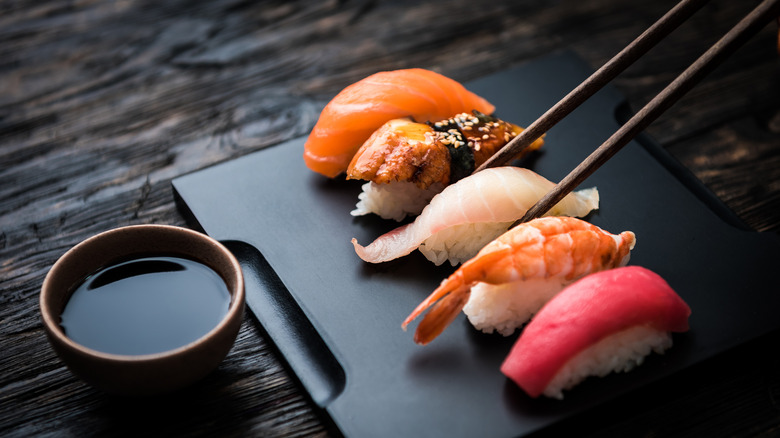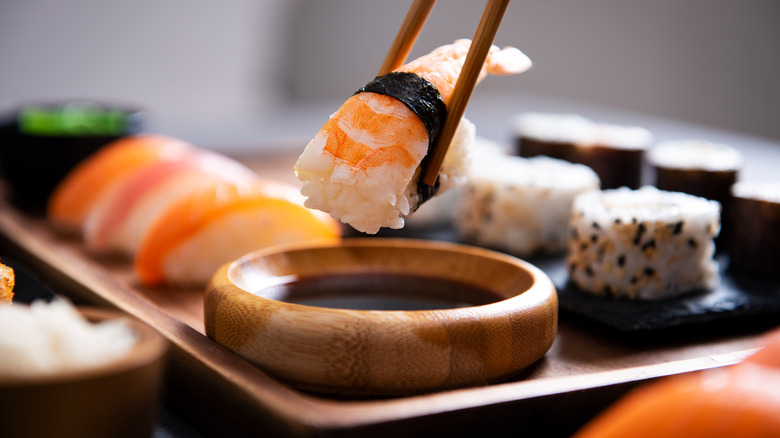Don't Ask For Extra Soy Sauce At A Good Sushi Restaurant
The sushi we are most familiar with is mass-produced. It will likely have come from a central commissary that produces sushi for different grocery or deli chains. Grocery store sushi may have pieces of nigiri, balls of vinegared rice with a sliver of raw or lightly cooked fish, or maki rolls often made with surimi or avocado. The sushi will be cool, if not cold, and will come with packets of soy sauce and wasabi to add a bit of spice to what will likely be an unflavored, tasteless meal.
But mass-prepared sushi doesn't hold a candle to sushi as it is meant to be served. High-end sushi bars are where chefs actively interact with guests so the latter know what to expect and enjoy an elevated dining experience. Everything is thought through, from the type of sushi that will be served to its temperature and how it is meant to taste. As New York sushi chef Seki Shi of Sushi Seki put it, "Normally, chefs try to give you the perfect balance to enhance the flavors of the fish and the texture of the rice, so trust them," he says, per Insider. What that means is that there is no need to ask for extra soy sauce.
The soy sauce rule is so strict that the famed Sukiyabashi Jiro, restaurant of acclaimed chef Jiro Ono, considers a request for soy sauce as neglect" on the part of the sushi chef.
High-end sushi restaurants have plenty of rules
While most casual sushi restaurants serve meals in a far more relaxed atmosphere, the same cannot be said of high-end restaurants, where many rules are set in stone. Guests don't get to choose what they eat. Instead, they are given an omakase, where the chef decides what sushi is served and in what order. In some restaurants, guests are even expected not to wear perfume or cologne. One example is the three Michelin-starred restaurant Masa, which makes that request, as it is believed that scent could be a negative distraction for other diners.
Over in Tokyo, Sukiyabashi Jiro even offers what it calls an "Eating Recipe," where it advises diners not to consume too much ginger, not to separate the fish from the rice, calling it the "greatest insult" and turning sushi upside down to eat it. So while some diners might feel the rules take away from the experience of eating great sushi, connoisseurs would beg to disagree — in fact, they may say the rules enhance the experience instead.

